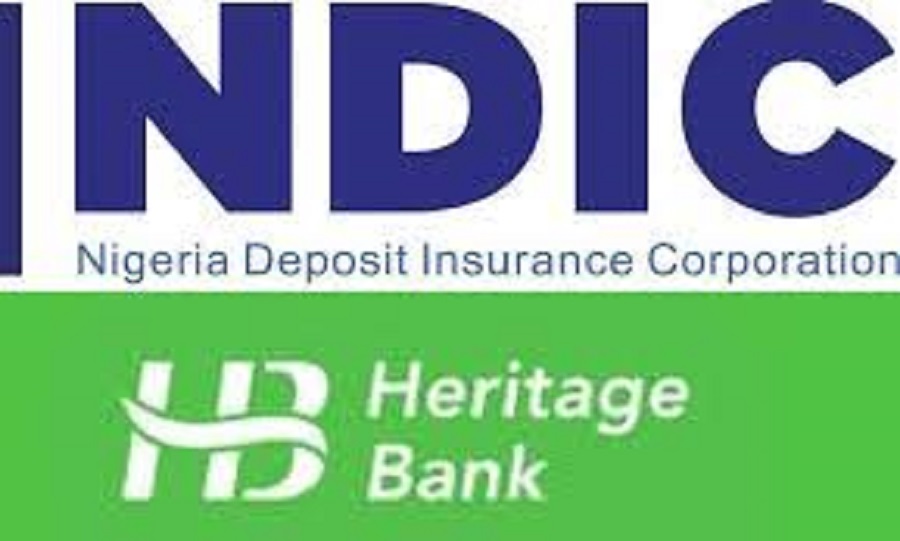E-Financial
Analyst Predict Fidelity to meet Recaptalization Threshold ahead of Regulatory Deadline

Fidelity Bank Plc is making impressive strides on its path to fulfilling the recapitalization targets set by the Central Bank of Nigeria (CBN). With a successful first phase of its capital-raising initiative that recorded over 238% over subscription and share price growth of over 100% evidencing a huge surge in investor confidence for the bank.

Following the successful completion of phase 1 of its capital raise, the bank is exceptionally well-positioned to not only meet the regulatory threshold strengthen but also fuel its growth trajectory.
With the recent conclusion of its equity capital raise through a Public Offer and Rights Issue, collectively known as the Combined Offer. The response has been nothing short of extraordinary, with the Public Offer oversubscribed by an astounding 237.92%. This translates to 107,588 valid applications for a total of 23,768,724,000 ordinary shares, amounting to ₦231.7 billion. The Rights Issue also shone brightly, achieving a remarkable 137.73% subscription rate with 6,903 valid applications for 4,407,252,795 ordinary shares, totaling ₦40.7 billion.
Dr. Nneka Onyeali-Ikpe, the Managing Director and CEO of Fidelity Bank, expressed heartfelt gratitude for the overwhelming support from investors, stating, “The positive results recorded in our Combined Offer are a testament to the strength of the Fidelity Bank franchise in the capital market.” Such a robust response not only underscores investor confidence but also reaffirms the bank’s unwavering commitment to delivering innovative financial solutions and sustainable returns to its stakeholders.
Following this remarkable success, Fidelity Bank has secured shareholder approval to launch the second phase of its capital-raising initiatives. This includes a significant increase in the bank’s issued share capital from ₦26.7 billion to ₦36.7 billion. Shareholders endorsed this expansion during an Extraordinary General Meeting on February 6, 2025, approving the creation of an additional 20 billion ordinary shares of ₦0.50 each.
This strategic capital boost positions Fidelity Bank to meet the CBN’s new minimum regulatory capital requirement of ₦500 billion for banks with international authorization by March 31, 2026. This ambitious goal aligns seamlessly with the bank’s vision for sustainable growth and exceptional service delivery, setting the stage for a dynamic future.
Fidelity Bank’s stock performance has further solidified its status as a top contender in the financial sector. From an initial offer price of ₦9.75 per share during the Public Offer, shares soared to a high of ₦21.15 on February 7, 2025, representing an impressive growth rate of over 116%. This positions Fidelity Bank as one of the best-performing financial institutions in the market, with analysts from Apel Asset Limited noting an impressive 80% return on investment for shareholders who have held shares since 2023.
Market analysts project a considerable upside potential of 28.88%, establishing a fair value of Fidelity Bank at ₦23.15 against a reference price of ₦19.50. Such promising indicators not only enhance investor confidence but also position Fidelity Bank as a compelling investment opportunity within the Nigerian banking landscape.
The funds raised from the initial phases of the capital-raising exercises are earmarked for several key initiatives. Fidelity Bank plans to utilize these resources for local and international business expansion, enhancing technology infrastructure, and improving customer service initiatives. This proactive approach showcases the bank’s commitment to innovation and operational excellence.
As the bank gears up for the next phase of its capital-raising initiative, the primary focus remains on achieving its recapitalization targets while consistently delivering value to stakeholders. The bank’s leadership is confident that, with sustained investor support and a robust financial strategy, it will adeptly navigate the evolving landscape of the Nigerian banking sector.
Fidelity Bank’s recent achievements in capital raising signal a pivotal moment in its journey toward strengthening its financial foundation. With robust investor backing, strategic capital allocation, and a clear vision for growth, Fidelity Bank is not just on track to meet its recapitalization target—it is poised to exceed it.
The road ahead promises to be one of sustained growth and innovation, reinforcing Fidelity Bank’s position as a leader in the Nigerian financial sector. As the bank looks toward the future, it remains steadfast in its commitment to fostering strong relationships with investors and delivering on its promise of financial excellence and exceptional customer satisfaction.
Fidelity Bank’s proactive measures and impressive market performance pave the way for a brighter, more prosperous future—one where it continues to lead with integrity and vision in the ever-evolving financial landscape.
E-Financial
FundQuest Empowers Women Entrepreneurs, Fueling Economic Growth

FundQuest Financial Services Limited marked this year’s International Women’s Month with a renewed commitment to economic empowerment, hosting the inaugural FundHER by FundQuest Conference.

This initiative brought together over 100 women-led Small and Medium Enterprises (SMEs), providing them with actionable business insights, high-value networking, and, most importantly, access to funding.
Delivering the first keynote address, Dr. Jennifer Seidu, Principal Consultant, JV Management Consulting Limited, underscored the critical hurdles female entrepreneurs face: constrained access to funding, market expansion limitations, regulatory roadblocks, and operational inefficiencies.
She lauded FundQuest’s decisive intervention through FundHER, recognising the initiative as a timely and much-needed response to the financial inequities that women-led businesses encounter.
Joan Ediagbonya, Group Head, Brand Communication and Customer Experience at FundQuest, also reinforced these concerns with data, pointing out that while women own 45 per cent of SMEs in Nigeria, only 10 per cent have access to formal funding. Quoting Michelle Obama, she emphasised, “No country can ever truly flourish if it stifles the potential of its women and deprives itself of the contributions of half of its citizens.”
Similarly, Ms. Olubukola Olaigbe, CEO of Veedic Nigeria Limited, shared how accessing financing from FundQuest facilitated her logistics firm’s expansion, proving that with the right financial support, women entrepreneurs can achieve remarkable business growth.
Speaking on the future of FundHER, Mr. Abiodun Akinjayeju, Managing Director and CEO of FundQuest, made it clear that this initiative is here to stay. In his words; “If you educate a woman, you educate a nation; if you fund a woman’s business, you are funding the economy.”
E-Financial
Nigeria Gets Fresh $500m World Bank Loan for Economic Stimulus Programme

The World Bank has approved a $500 million loan to Nigeria to support the country’s Community Action for Resilience and Economic Stimulus Programme.

According to information obtained from the bank’s website on Sunday, the approval, which took place on March 28, 2025, marks a significant step in addressing Nigeria’s economic challenges through expanded access to livelihood support, food security services, and grants for poor and vulnerable households and firms.
The project, officially titled the NIGERIA: Community Action (for) Resilience and Economic Stimulus Program, aims to provide essential support to households affected by economic downturns and to bolster community resilience.
It also seeks to improve food security and create economic opportunities for populations most affected by recent economic disruptions.
According to the World Bank, the program represents a significant step toward addressing systemic vulnerabilities in Nigeria’s economy.
By channeling resources directly to underserved communities, the project should alleviate the burden of rising living costs while fostering sustainable growth.
The $500 million loan is not the only financial commitment Nigeria anticipates this week as two additional funding packages are in the pipeline, awaiting final approval.
One of the loans is valued at $80 million and will focus on accelerating nutrition outcomes across the country.
The second, worth approximately $552 million, is designed to enhance access to quality basic education nationwide as both projects are scheduled for final clearance on March 31, 2025.
These loans are part of the World Bank’s broader strategy to support Nigeria’s development priorities, most especially in areas such as healthcare, education, and poverty alleviation, while the institution emphasized the importance of implementing these programs efficiently to ensure maximum impact.
While the loans aim to address urgent socio-economic needs, Nigeria’s rising debt profile has raised concerns among stakeholders. Under the President Bola Tinubu’s leadership, the country has received approvals for 11 World Bank projects totaling 7.45 billion in less than two years. However, data from the Debt Management Office (DMO) reveal that only 774.99 million (about 16% of the approved amount) had been disbursed as of July 31, 2024.
This slow pace of disbursement has sparked debates about the efficiency of project execution and fund utilization
E-Financial
Uninsured Depositors of Heritage Bank to Receive Liquidation Dividends In April – NDIC

Depositors of Heritage Bank (in-liquidation) with balances exceeding the insured sum of ₦5 million will be paid from the sale of physical assets and debt recovery efforts soon, the Nigeria Deposit Insurance Corporation (NDIC) announced on Sunday.

With substantial progress recorded in asset realization, the first tranche of liquidation dividends will be paid to uninsured depositors in April 2025 on a pro-rata basis, in line with Section 72 of the NDIC Act 2023, which prioritizes claims.
The clarification follows concerns raised by depositors regarding the status of their uninsured funds.
A statement issued by Hawwau Gambo, acting head of Communication & Public Affairs, NDIC, reiterated the Corporation’s commitment to ensuring timely payments.
Following the revocation of Heritage Bank’s banking license by the Central Bank of Nigeria (CBN) on June 3, 2024, the NDIC was appointed as the liquidator in accordance with Section 12(2) of the Banks and Other Financial Institutions Act (BOFIA) 2020 and Section 55(1 & 2) of the NDIC Act 2023.
In line with its statutory mandate, the Corporation immediately commenced the bank’s liquidation process, including the verification and payment of insured deposits.
Providing an update on the ₦5 million maximum payout per depositor, the NDIC noted significant progress while acknowledging some challenges affecting certain depositors, including issues related to Bank Verification Numbers (BVN), Post No Debit (PND) restrictions, and Know Your Customer (KYC) limitations.
“Significant progress has been made in reimbursing insured deposits up to the ₦5 million limit per depositor.
“However, depositors yet to receive payments are largely those without Bank Verification Numbers (BVN) or alternate accounts in other banks, which are required to process payments through the Nigeria Inter-Bank Settlement System (NIBSS). Others have Post No Debit (PND) restrictions on their accounts.
“Additionally, some accounts have KYC limitations, such as Tier 1 accounts that restrict maximum lodgment of funds, while others have name mismatches requiring resolution.
“Some depositors who have already been paid may also be unaware due to a lack of mobile transaction alerts on their alternate accounts where the NDIC deposited their insured funds.
“Therefore, depositors are advised to check their alternate bank accounts, as some payments may have been processed without their immediate awareness,” the statement read.
Regarding payments to uninsured depositors, the Corporation explained:
“While depositors with balances above ₦5 million have received their insured sums, the remaining amounts will be paid as liquidation dividends, in accordance with the Corporation’s statutory mandate.
“The NDIC has made substantial progress in selling the bank’s physical assets and recovering debts to ensure that depositors with balances above the insured limit receive their payments as soon as possible.
As a demonstration of this commitment, the Corporation began realizing physical assets and investments while aggressively recovering outstanding risk assets, alongside verifying and paying insured sums.
“To ensure transparency and compliance with legal requirements, the NDIC has widely advertised the asset disposal process on its official website, social media platforms, major national newspapers, and through radio and television announcements.”
The NDIC emphasized that its simultaneous approach of paying insured depositors while aggressively pursuing asset sales and debt recovery is designed to accelerate the liquidation process and ensure that all depositors receive their funds without unnecessary delays.
“With the significant progress recorded in asset realization, the Corporation will declare the first tranche of liquidation dividends in April 2025, to be paid to uninsured depositors on a pro-rata basis, in line with Section 72 of the NDIC Act 2023, which governs the priority of claims.”
For clarity, the referenced section states:
“Where an insured institution is unable to meet its obligations or suspends payment, or where its management and control have been taken over by the Central Bank of Nigeria following the revocation of its license, the assets of the insured institution shall be available to meet its deposit liabilities. Such deposit liabilities shall have priority over all other liabilities of the insured institution.”
Consequently, other claimants of the failed Heritage Bank, including creditors and shareholders, will only be considered for liquidation dividend payments after all depositors have been fully reimbursed, the NDIC added.

 Telecom1 day ago
Telecom1 day agoMTN, Lynk Global Make Africa’s First Satellite-to-Mobile Call

 Telecom1 day ago
Telecom1 day agoSmart Treasure Investment Team’s Initiatives Eradicate Poverty, Says Aminu

 General News1 day ago
General News1 day agoSERAP Asks National Assembly to Drop Bill to Jail Nigerians who Fail to Vote

 E-Business1 day ago
E-Business1 day agoSystemSpecs’s Subsidiary Deelaa Becomes Whatadeal

 E-Business1 day ago
E-Business1 day agoCybersecurity Firm Says It’s Time to Back it Up, As the World Marks World Backup Day

 E-Financial1 day ago
E-Financial1 day agoNigeria Gets Fresh $500m World Bank Loan for Economic Stimulus Programme

 General News1 day ago
General News1 day agoFG to Elevate Enugu Tech Festival to National Event – Minister

 E-Financial1 day ago
E-Financial1 day agoUninsured Depositors of Heritage Bank to Receive Liquidation Dividends In April – NDIC























